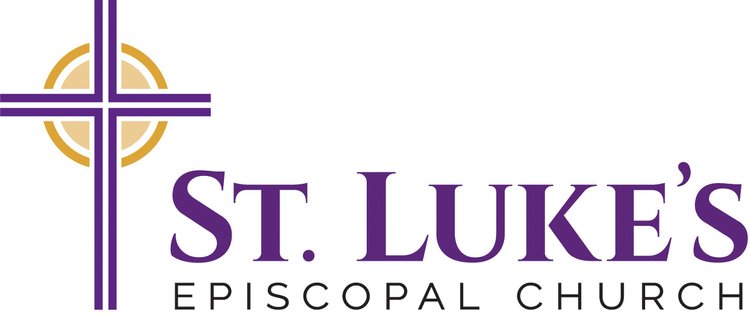The Good Work of St. Luke’s Sacred Ground Circle
Dear St. Luke’s,
A long time ago, I had the privilege of attending a talk about the history of female clergy in the Anglican Church, and I remember one portion being particularly compelling and poetic. The speaker was Rev. Dr. Judith McDaniel, then a recently retired homiletics (preaching) professor, just returning from a retreat in Iona where she was working on her book about the history of ordaining women in the Church. Iona is legendary for being an intensely sacred and beautiful Abbey on a small island off the coast of Scotland. While she was describing the intense beauty of this place, Rev. McDaniel spoke of walking through ancient grave markers of the Monks and Nuns that occupied the island when the British Isles were still largely pagan.
The stone crosses indicating buried Monks had near-faded inscriptions revealing their names and other bits of information about the person, while the stone crosses in the Nuns’ portion of the island were all blank. Apparently, the physical and spiritual lives of the women on the Island were not as valued as their brothers in Christ. Rev. McDaniel, a spiritual descendant of these early Anglican Nuns, immediately felt the injustice of this practice. She remembered the portion of Luke’s account of Jesus coming into Jerusalem where the Pharisees tried to get his disciples to stop spreading the good news, and Jesus’s response was “I tell you, if these were silent, the stones would shout out.”
I wonder why those stones were eager to cry out if the disciples ceased their proclamations. Sheer excitement? Fear of the trials and pain to come? Nothing could stop the proclamation of Jesus’s arrival, but what if creation itself was preparing to witness the miracles that would come in the following days? Christ came into Jerusalem triumphant, and just days later he left the empty tomb, leaving the world reconciled and with the hope of the resurrection. Everything changed in those few days, and no one could stop it.
We are certainly not able to reconcile the world as Christ did for us, but occasionally we do get to participate in efforts where glimpses of reconciliation cause us to feel as though the stones beneath our feet yearn to cry out. As I remember it, walking through the rows of blank burial markers of Nuns who were too unimportant to have their names remembered [as an ordained priest] was one of those moments for Rev. McDaniel. Even those stones seemed to know who she was and that her call to ministry was heard. Something changed, and it was as if those stones even felt it.
Over a year ago a group of St. Luke’s members agreed to meet once a month after reading assigned articles and watching films about the state of race in our country. The curriculum is called Sacred Ground and it is produced by the Episcopal Church. That journey was life-changing and eye-opening, and for me, the honesty and frankness were refreshing. After the lessons ended, the question remained, what now? Places like Virginia Theological Seminary are working toward reconciliation by addressing the fact that their campus exists because of slave labor. If the enslaved builders had been free and compensated, then that wealth could have turned into generational wealth benefiting their descendants today. St. Luke’s was built after the end of slavery, but the music we sing every Sunday is much older. We often sing Spirituals written by individuals unable to seek or obtain copyrights for their compositions and thus received no remuneration for our use of their creative intellectual property. This is just one small way in which people of color historically have been excluded from participation in activities that would allow them to build personal and intergenerational wealth.
The St. Luke’s Sacred Ground Circle made the proposal to the vestry that twice a year the music in our services will be composed of music composed by or from enslaved people, and we will donate at least five hundred dollars biannually to a local charity that promotes the arts among African Americans. This Sunday you will hear a different type of music than is our standard, and our contribution along with the loose plate offering will go to the Coalition for African Americans in the Performing Arts.
This is not a small amount of money, but it is certainly not going to fix the wrongs of the past. My hope is that there is power in at least acknowledging what should be, and we should work for those glimmers of reconciliation where we can. We are going to try this for right now. I invite you to sing the songs of the faithful and the marginalized with us this coming Sunday, and if you want to support this effort of racial reconciliation, please be generous in the offering.
Blessings,
Nick
